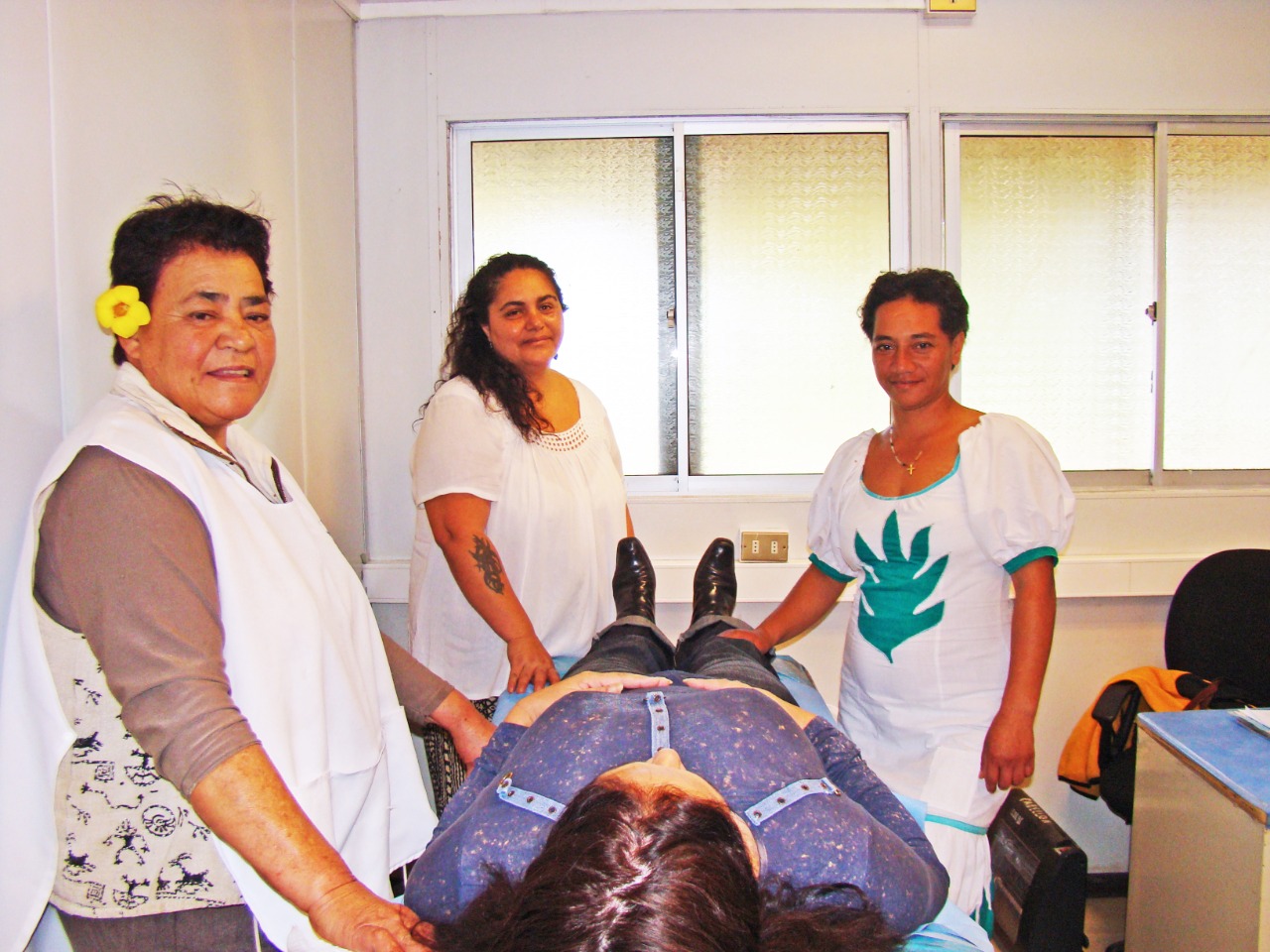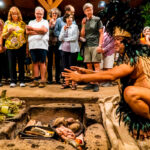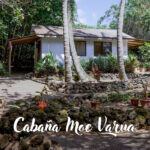The Great Celebration of the Ancestors
This year the celebrations around the “Day of the Rapanui Language” began on November 5 with a recreation of the Bird-man competition in the area of Motu Painga Rere behind Ahu Kihi Kihi Rau. Organized by the Honga´a o te Mana School, whose name translates as “Nest of Spiritual Power”, this event hoped to recover the traditional competition of the Tangata Manu (Bird-man) and recall the ancient rituals known as Poki Manu and Take Manu.
In 1985, Rodrigo Paoa-Atamu, member of the cultural group “Mata Nui a Hotu Matu´a o Kahu Kahu o Hera”, proposed including traditional sports of the ancient Rapanui culture in the annual festival Tapati Rapa Nui, such as Haka Pei or sliding on banana trunks and Taua Rapa Nui, a type of triathlon of ancestral sports which is held in the crater of Rano Raraku. Today these competitions are some of the main attractions of Tapati Rapa Nui. But the Tangata Manu (Bird-man) competition has still been waiting.
In the past, the selection of Tangata Manu was implemented as a way of re-establishing political and religious order, following a period of overpopulation, famine and tribal wars which disaccredited the Mana, or spiritual power, of the Ariki Henua, the hereditary tribal chiefs. Its origins date back to the first half of the 18th Century, according to Sebastian Englert. This competition was held for around 200 years, until, following the arrival of the Catholic missionaries of the Sacred Heart in 1866, all the Rapanui were baptized into the new faith. “Once the missionaries saw the Ao dancing with the egg outside their door in Hanga Roa, they told the people that it was the devil” recounted Katherine Routledge, and it was abolished. The last time the competition was held was between 1866 and 1867 in the presence of Brother Eugenio Eyraud and Father Gaspar Zumbohm.
This event was held in the first months of spring in honor of the god Make Make, who, as protector of the Island, had brought the Manutara, or frigate bird, from the Sala y Gómez Island. All the people would head to Orongo by a trail called the Route of the Ao, which still exists. The competitors, or Hopu Manu, were assistants and servants of the Matato´a warrior chiefs who aspired to become the Bird-man. A good Hopu Manu needed to have many important qualities, among them, agility, stamina for swimming and expertise in scaling cliffs.
A festival, the Koro Manu, was held to accompany the competition during which the participants cheered on their candidates with dances, songs and rituals. After the king gave the order, the Hopu Manu would descend the cliff side to the edge of the sea and swim, supported by a conical floater made of reeds, the approximately 1,500 meters (almost 1 mile) to the largest off-shore islet, Motu Nui. The first one to find an egg would stand on a tall rock called Puku Rangi Manu and would be announced by a messenger from the cavern of Ana Hakarongo Manu with the shout to the Hopu Manu’s candidate for Bird-man: -Ka Varu te Puoko!- Cut your hair!, by which all would understand that he had won. Then the athlete would swim back and deliver the egg to the warrior chief of his tribe, giving him the power to become the next Tangata Manu.
There were also the rituals known as Poki Manu and Take Manu. It is known that once the Tangata Manu celebrations were finished in December, boys and girls were taken to Orongo for initiation rituals, or their consecration to the god Make Make. In addition, they held the Koro Take, which was training in preparation for the survival of these young athletes.
This year the Liceo Aldea Educativa and the Municipality organized the event Koro Nui Tupuna, or “great festival of the ancestors”, with the participation of 21 students from the 3 schools on the Island and with 4 categories: Take Manu for girls and Poki Manu for boys between 15 and 16 years old, and Neru for girls and Hopu Manu for boys between 17 and 18 years. The purpose of these activities, according to Rodrigo Paoa, was to revitalize the culture, promote respect for the ethnic group, strengthen social bonds and foster integration. In the past, they were held to reinforce the social norms and community values, such as the cooperative labor known as Umanga, as well as building ties with the clan, teaching them to care for themselves, respecting the customs and the elders and respecting the environment. For many reasons, these are values are being lost since the arrival of outsiders who have brought their different ways of life, producing transcendental changes in Rapanui society.
The recreated activities consisted of various tests of physical and cultural abilities, all part of the ancestral Koro Manu ceremony, but, in a break with the past, utilizing modern safety equipment. Each contestant began with a short explanation of their clothing and a demonstration of body painting. They gave the judges a rooster or a hen and an egg. Using different Tahonga hung around their necks, each participant had to present him or herself with his or her ancestral name for the competition. There was a canopy slide on rope for 100 meters (310 feet), then 200 meters of swimming. They had to scale a rock and, once on top, run a circuit of 80 meters back to the starting line. Finally, the girls had to present a Kai-kai, a string game with accompanying recital, while the boys had to perform a Hoko, a warrior’s chant.
Those who were competing as Hopu Manu first had to crawl down the cliff and swim 300 meters (1000 feet) to an islet where they could search for an egg which was previously hidden. Placing their prize in a popo, a headband with a small basket on the front, they scaled back up the cliff using the Ma´ari ropes, but under their own power. The egg was delivered to the judges, called Tangata Tapa Manu, and each competitor performed his Hoko.
Some of the participants commented that they “felt connected to the ancestors who watch us from beyond.” And although they indicated that the competition was very difficult, they explained that they felt “great pride in sensing the mysticism of being a royal competitor of the past.”












